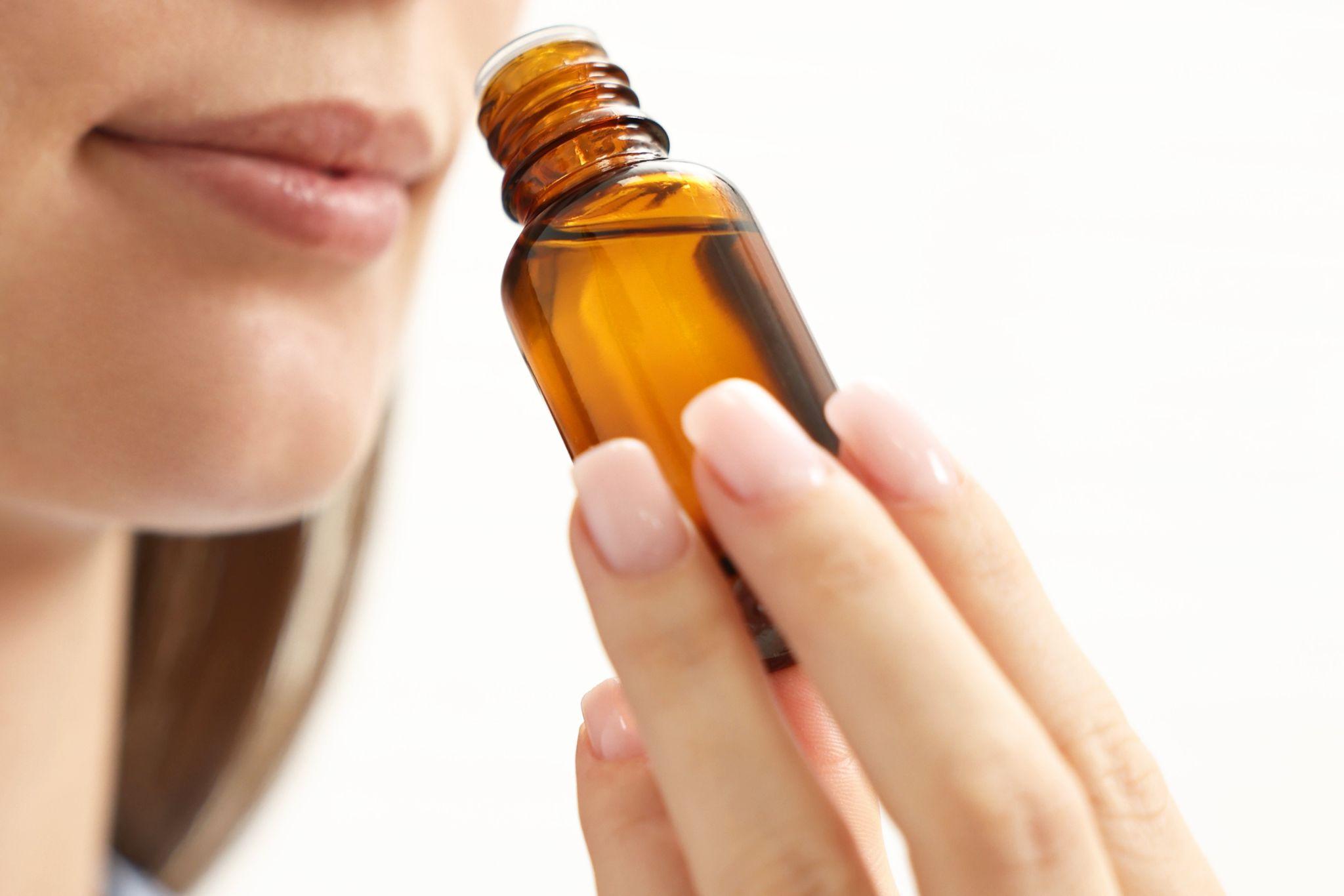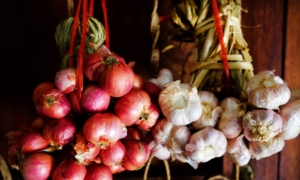While some metrics indicate a decline, COVID-19 activity in the United States remains elevated, according to the latest data from the Centers for Disease Control and Prevention. On “Health 1+1”, Erica Kuo, a U.S.-certified clinical aromatherapist and herbal aromatherapy educator, shared valuable insights on using essential oils to help prevent COVID-19 and alleviate its symptoms.
Essential oils are highly concentrated, aromatic volatile compounds derived from plants, containing a complex array of chemical constituents. Characterized by their small molecular size, high lipophilicity, rapid onset of action, and virucidal properties at low toxic concentrations, they remain nontoxic at therapeutic levels. These qualities suggest that essential oils may serve as preventive agents in the early stages of viral pneumonia and are suitable for use in combination with other therapies.
Efficacy of Essential Oils Against COVID-19
Numerous studies have demonstrated that certain essential oils can target the virus that causes COVID-19 through direct virucidal action and various pharmacological properties, including anti-inflammatory, immunomodulatory, and antioxidant effects.
Kuo shared her family’s experience with COVID-19, during which they found relief using essential oils and aromatic herbs. She recommends the following seven essential oils to help alleviate COVID-19 symptoms.
Oregano Oil
Oregano, known for its distinctive flavor, contains powerful compounds such as carvacrol and thymol, celebrated for their
antioxidant and anti-inflammatory properties.
Oregano essential oil is highly regarded for its antibacterial, antiviral, and antifungal effects. One study found that oregano essential oil could inhibit the cellular entry of the SARS-CoV-2 Delta variant.
Citrus Oils
Citrus essential oils contain limonene, a compound with
a wide range of beneficial properties, including antioxidant, anti-inflammatory, anticancer, antinociceptive (pain-blocking), and gastroprotective effects. Limonene has also demonstrated protective benefits in neurodegenerative diseases such as Alzheimer’s disease, in addition to epilepsy, anxiety, and stroke.
Frankincense Oil
Frankincense oil
has been shown to exhibit immunomodulatory properties. Its active compound, boswellic acid, has potential
antimicrobial, anti-tumor, and anti-inflammatory effects. Small studies, including some involving human participants, suggest that frankincense resin may aid in managing chronic conditions, including colitis (a condition that causes inflammation in the large intestine) and bronchial asthma.
Some cancer patients use frankincense oil during chemotherapy, Kuo said. A 2020 review found that frankincense might be beneficial in managing brain cancer-related edema, although it did not appear to reduce the size of the tumors.
Lavender comes in many varieties, but true lavender, scientifically known as Lavandula angustifolia (narrow-leaf lavender), is the most widely recognized for its therapeutic and aromatic properties, Kuo said true lavender contains compounds that enhance immune function and has been shown to stimulate macrophage responses against Staphylococcus aureus (golden staph) bacteria.
A 2023 clinical trial found that lavender may help reduce the severity of cough and improve smell and taste dysfunction in COVID-19 patients.
Cinnamon Oil
Pharmacological evidence indicates that cinnamon has antiviral, anti-inflammatory, antioxidant, organ-protective, and antidepressant properties. Additionally, its anti-obstructive effect may help alleviate airway mucus blockages associated with COVID-19 infections.
Eucalyptus Oil
Multiple studies suggest that eucalyptus oil may possess immune-supporting properties. Traditionally, it has been used to
treat a range of respiratory conditions, including pharyngitis, bronchitis, and sinusitis.
For patients with thick phlegm and painful coughing, eucalyptus essential oils, such as those derived from peppermint eucalyptus (Eucalyptus dives) and blue gum eucalyptus (Eucalyptus globulus), can help reduce mucus and alleviate discomfort, Kuo noted. However, she cautioned against using lemon eucalyptus (Eucalyptus citriodora), which is primarily used as an insect repellent.
Rosemary Oil
Traditionally, rosemary has been used as an
anti-inflammatory and analgesic agent. It is also known for its antioxidant and antimicrobial properties.
One study found that rosemary water extract may help reduce the risk of COVID-19 infection and progression.
Kuo recommends using rosemary cineole instead of rosemary verbenone, as the latter is mainly used for anti-aging skin care.
The Role of Dandelions
Kuo cited a
German study indicating that dandelion aqueous extract can block the binding of the COVID-19 virus’s spike protein to the human ACE2 receptor.
This helps prevent the virus from infecting lung cells and inhibits the secretion of pro-inflammatory interleukin-6, a type of protein that plays a role in the immune response, triggered by the virus.
Ways to Use Essential Oils
Kuo outlined three simple and effective methods for using essential oils:
Diffusion
Patients with COVID-19 may cough onto or touch household surfaces, potentially spreading the virus. Kuo recommends using essential oils in a diffuser to combat airborne viruses and help reduce transmission indoors.
Topical Application
Mix several essential oils with a carrier oil, diluting the blend to a 2 percent concentration, and apply it to the chest and back. Caution should be taken with oregano oil, keeping its concentration below 0.5 percent to prevent skin irritation.
Inhalation
Placing blended oils near the nose can be beneficial, Kuo said. However, she cautioned against using too much oregano oil, recommending two to three drops per ounce (30 milliliters) for adults and only one drop for children. Alternatively, winter savory essential oil can be a gentler option for children, as it contains less carvacrol and is less likely to cause irritation.
To prevent cross-contamination, each person should use a personal inhaler. The recommended method involves placing the inhaler near each nostril, taking 20 breaths per side, and repeating the process every two hours.
Restoring Taste and Smell
Loss of taste and smell is a common symptom after contracting COVID-19. To aid in recovery, smell retraining has been suggested as an effective approach. Kuo referenced
guidelines from the UNC COVID Recovery Clinic, which recommend four essential oils: rose, citronel (citrus/lemon), eucalyptus (menthol), and cinnamon.
Smell each oil twice daily for six weeks to support the restoration of your sense of smell, Kuo said. The specific steps are as follows:
- Add a few drops of essential oil to a cotton ball or pad and let it sit for one to two minutes.
- Hold the pad about an inch from your nose and inhale slowly and naturally. Visualize the scent in your mind by either looking at a picture or closing your eyes and imagining it.
- Move the pad away, then repeat the process with the same oil a few times.
- Repeat this process for each essential oil, resting for a few minutes between each one.

















